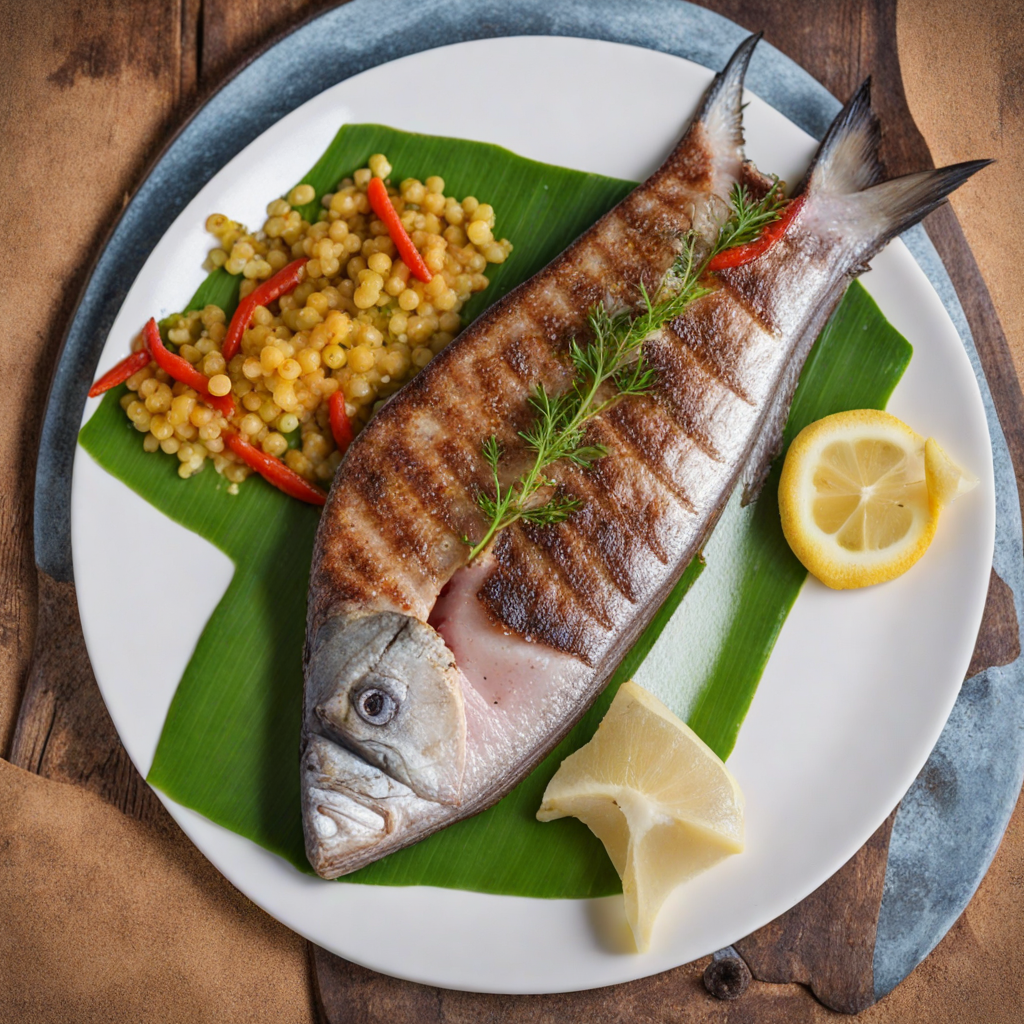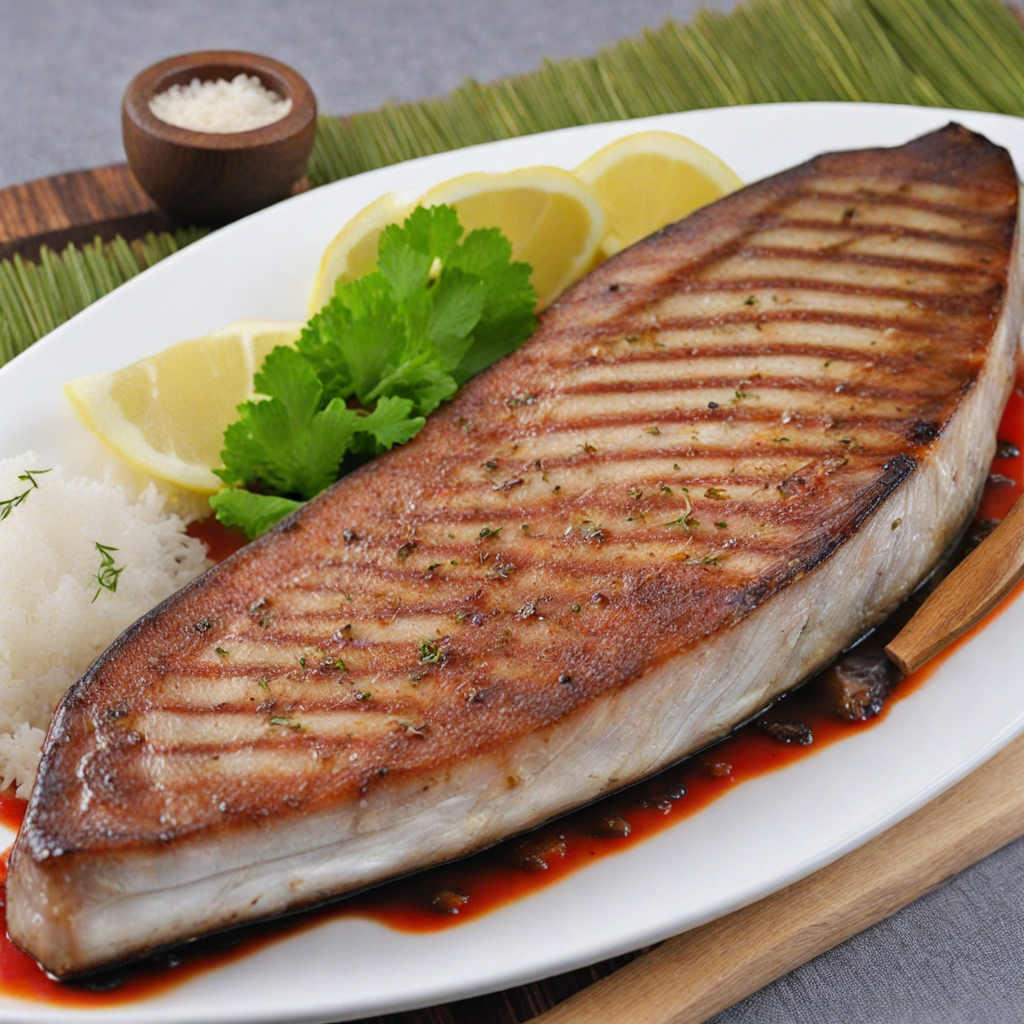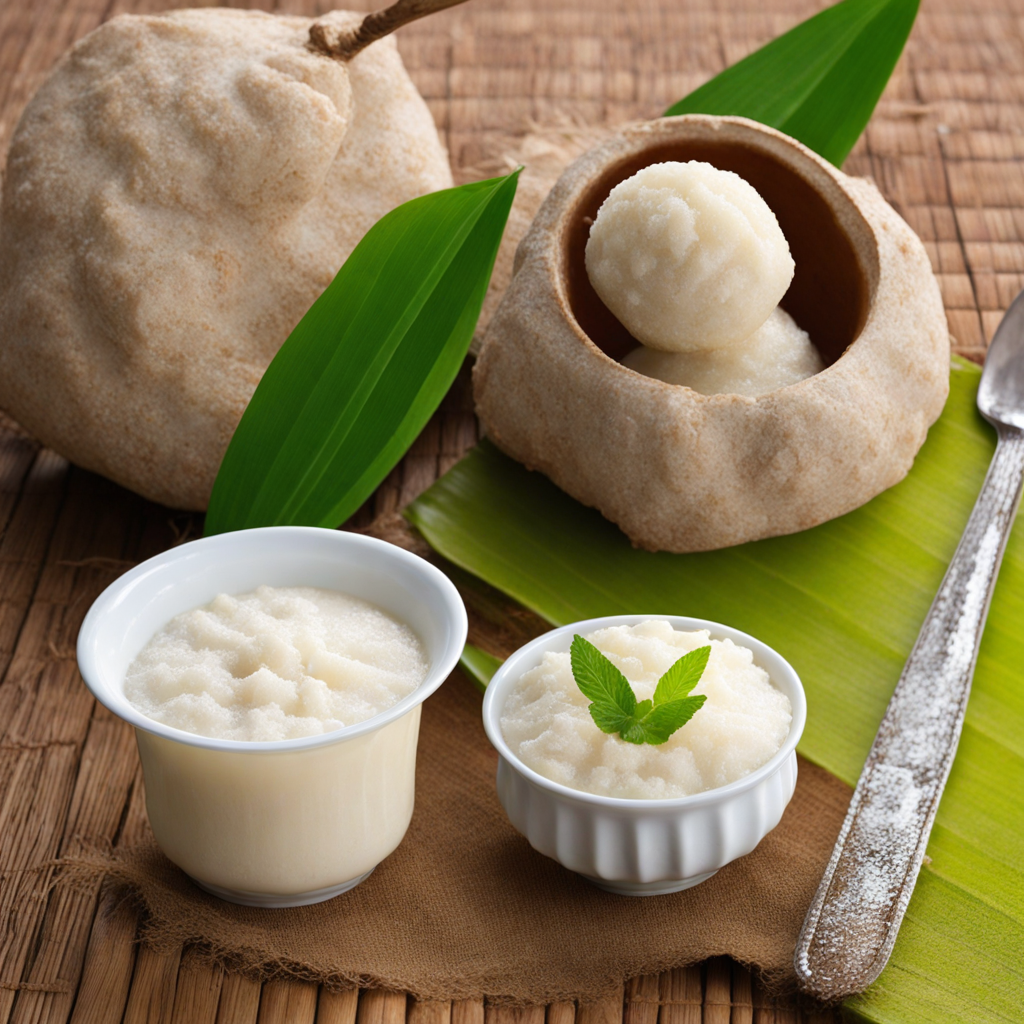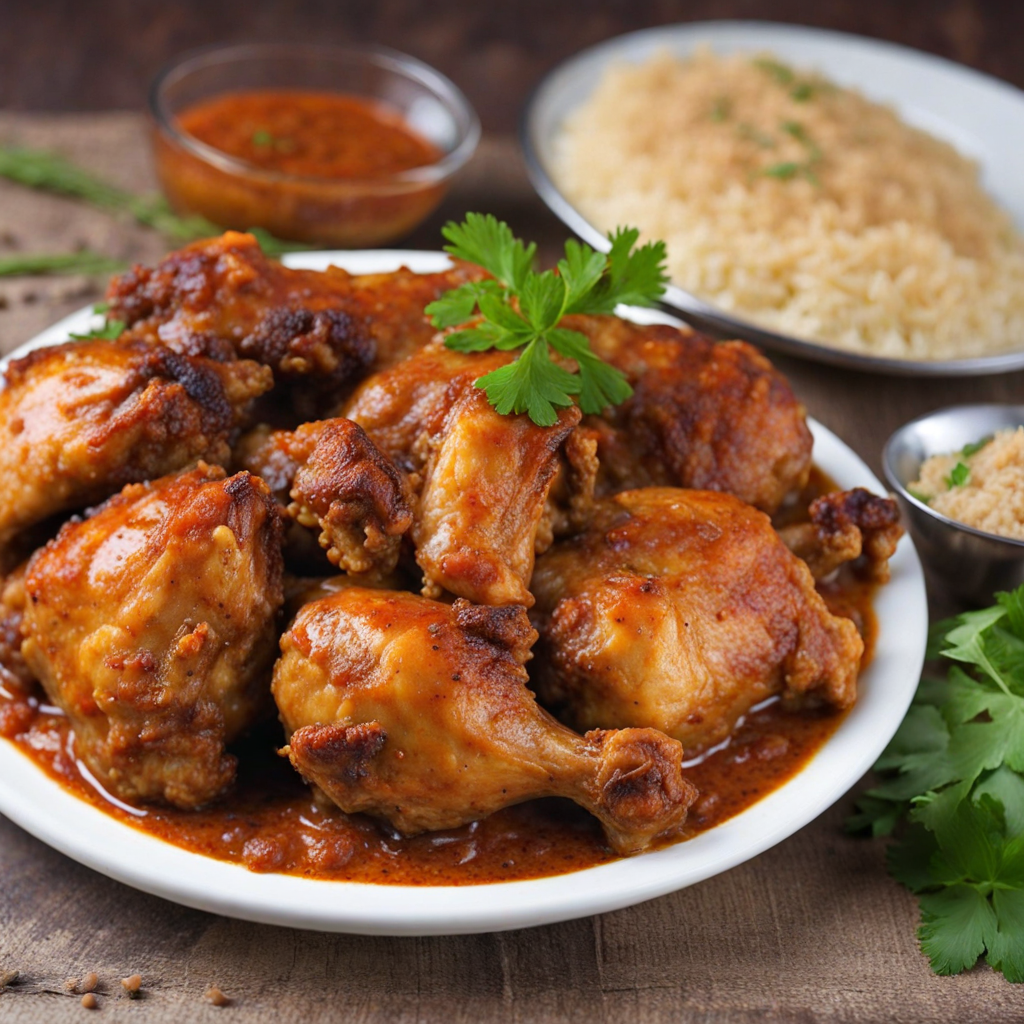Kingfish Steak
Kingfish Steak, a culinary gem from the Comoros, is a dish that beautifully encapsulates the vibrant flavors of the islands. This succulent steak is derived from the kingfish, a prized catch known for its rich, buttery texture and slightly sweet flavor. When grilled or pan-seared, the fish develops a delightful caramelized crust that locks in its moisture, resulting in a melt-in-your-mouth experience. The natural flavor of the kingfish is further enhanced by the region's native spices, such as cloves and vanilla, which infuse the dish with an aromatic complexity that transports your taste buds to the tropical shores of Comoros. One of the standout features of Kingfish Steak is its versatility in preparation. It can be served simply with a squeeze of fresh lime or paired with a vibrant salsa made from local fruits like mango or papaya, which adds a refreshing contrast to the rich fish. The dish is often accompanied by a side of coconut rice or sautéed vegetables, showcasing the island's agricultural bounty and making every bite a celebration of fresh, local produce. This combination of flavors not only highlights the kingfish's natural qualities but also embodies the essence of Comorian cuisine, which harmonizes seafood with tropical ingredients. Dining on Kingfish Steak is more than just a meal; it is an experience steeped in the culture and traditions of the Comoros. The dish is often enjoyed during festive gatherings and family celebrations, embodying the warmth and generosity of the island's people. Each bite tells a story, reflecting the rich fishing heritage and the deep connection between the community and the sea. For anyone seeking to explore new tastes, Kingfish Steak promises a delightful adventure, inviting you to savor the unique flavors of Comoros and discover the culinary artistry that defines this enchanting destination.
How It Became This Dish
Steak de Poisson-Roi: A Culinary Journey from the Comoros Origin Steak de Poisson-Roi, translating to "King Fish Steak," is a delightful representation of the culinary heritage of the Comoros Islands, located off the eastern coast of Africa in the Indian Ocean. The islands, comprising Grande Comore, Mohéli, Anjouan, and Mayotte, boast a rich history shaped by various cultural influences, including Arab, African, and French elements. The name "Poisson-Roi" refers to the noble fish species, particularly the marlin, which is highly prized for its size and flavor. The origins of this dish can be traced back to the fishing traditions of the Comorian people. Fishing has always been a fundamental aspect of life in the islands, providing sustenance and shaping the local economy. The waters surrounding Comoros are teeming with a variety of fish, and marlin, known for its large size and firm flesh, became a preferred catch. The method of preparing fish by grilling or pan-searing, which is prevalent in many coastal cultures, became a staple for the Comorians, leading to the creation of Steak de Poisson-Roi. Cultural Significance The cultural significance of Steak de Poisson-Roi extends beyond its delicious taste. It embodies the Comorian way of life, where fishing is not merely an occupation but a communal activity that brings families and communities together. The fishing season often sees local fishermen come together, sharing stories and techniques passed down through generations. The preparation and consumption of Steak de Poisson-Roi often coincide with community gatherings, celebrations, and festivals, signifying its role in social cohesion. Furthermore, the dish reflects the islands' connection to the sea. The Comoros are known for their stunning marine biodiversity, and the ocean is woven into the cultural fabric of the islands. The preparation of Steak de Poisson-Roi is often accompanied by traditional music and dance, showcasing the rich heritage of the Comorian people. The dish is not just food; it symbolizes the relationship between the inhabitants and their environment, emphasizing sustainability and respect for marine resources. Development Over Time As the Comoros Islands evolved, so did their culinary practices. The arrival of Arab traders in the 7th century brought new spices and cooking techniques, which began to influence local cuisine. The use of spices like ginger, turmeric, and garlic became commonplace, enriching the flavors of traditional dishes, including Steak de Poisson-Roi. The fusion of these spices with the local fish created a unique flavor profile that distinguishes the dish today. During the colonial period, especially under French rule, the culinary landscape of the Comoros underwent significant changes. French cooking methods and ingredients were introduced, leading to a hybridization of culinary practices. The influence of French cuisine can be seen in the presentation and preparation of Steak de Poisson-Roi, where techniques like marinating with citrus juices and pairing with sophisticated sides became popular. This period also saw an increase in the availability of ingredients, as trade routes expanded and new foods were introduced. In the late 20th century, the Comoros faced political and economic challenges that impacted traditional fishing practices. The rise of tourism on the islands brought both opportunities and challenges. While tourism created a market for local dishes, it also led to a shift in dietary habits, with visitors often seeking familiar Western foods. To adapt, the Comorian culinary scene began to incorporate elements of international cuisine, while still maintaining the authenticity of traditional dishes like Steak de Poisson-Roi. In recent years, there has been a resurgence of interest in traditional Comorian cuisine. Culinary enthusiasts and chefs are now focusing on preserving the rich culinary heritage of the islands, and Steak de Poisson-Roi has gained recognition both locally and internationally. Food festivals celebrating Comorian cuisine have emerged, showcasing traditional dishes to a broader audience. This revival emphasizes the importance of sustainability and the need to protect marine ecosystems, ensuring that future generations can enjoy the bounties of the sea. Preparation and Variations The preparation of Steak de Poisson-Roi is relatively straightforward, yet it highlights the quality of the fish and the skill of the cook. The marlin fillets are typically marinated in a mixture of fresh lime or lemon juice, garlic, and a blend of local spices, allowing the flavors to penetrate the fish. This marination process not only enhances the taste but also tenderizes the meat. Once marinated, the fish is grilled or pan-seared until it develops a beautiful golden crust while remaining moist and flaky inside. It is often served with a side of coconut rice or fried plantains, which perfectly complement the rich flavors of the fish. A refreshing salad made with local vegetables and herbs often accompanies the meal, adding a burst of color and freshness to the plate. Variations of Steak de Poisson-Roi can be found across the Comoros, with each island adding its own twist. For instance, in Grande Comore, chefs may incorporate a spicy pepper sauce, while in Mohéli, the dish could be served with a coconut-based sauce that reflects the island's unique agricultural products. These regional adaptations not only showcase the diversity of the islands but also highlight the importance of local ingredients in the preparation of traditional dishes. Conclusion Steak de Poisson-Roi is more than just a dish; it is a reflection of the Comoros' rich culinary heritage, cultural significance, and the evolving nature of its food practices. From its origins rooted in fishing traditions to its current status as a celebrated dish in local and international culinary scenes, Steak de Poisson-Roi embodies the essence of the islands' connection to the sea, community, and culture. As the Comoros continue to navigate the challenges of modernity, the preservation and celebration of traditional dishes like Steak de Poisson-Roi remain vital to maintaining their unique identity and heritage.
You may like
Discover local flavors from Comoros







